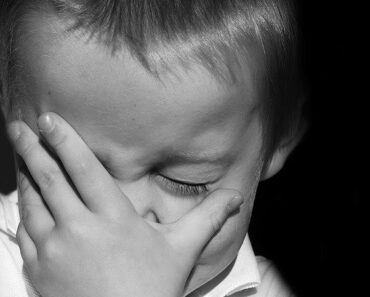Knowing how children develop is vital to a successful parent-child relationship. An interest in learning affects a child’s curiosity, confidence, and creativity. Children’s needs and environment are intertwined, so it is crucial to consider all areas of a child’s development when planning activities for them. Parents who understand how children think and feel are more likely to recognize issues before they become more serious.
Understanding the developmental stages of a child helps parents and teachers make effective decisions when communicating with children. Toddlers and preschool-aged children often think in all-or-nothing terms. When speaking to a child, it is essential to use concrete terms, as opposed to abstract terms. By talking in concrete terms, parents and teachers are better able to separate the child from his or her actions and feelings. By doing so, they avoid sending the child messages that may not be helpful to his or her development.
An understanding of child development will also allow parents and teachers to respond to a child’s unique needs. A healthy child has multiple growth areas and learning environments that can intersect. For example, during the preschool years, social awareness often grows, and cognitive discoveries are made through movement and physical growth. Educating a child doesn’t end with words and numbers. It is important to teach emotional vocabulary and help children develop a linguistic vocabulary.
It’s important to know how different developmental stages are related. As infants start to understand the thoughts and feelings of others, they begin to understand what other people are thinking about them. In addition, understanding how children develop will help you deal with difficult situations when they arise. A child’s social, emotional, and communication domains are all connected. And it’s important to understand how these domains overlap so that you can best support a child’s growth.
In addition to learning about the brain, understanding the different stages of child development is essential for parents and teachers. It can also help you to build relationships with children. For example, it is important to avoid speaking in a purely egocentric way with young children. Instead, speak in concrete terms and emphasize that you care about their needs. This will help to keep your child’s emotional vocabulary intact. And it will help you to have a successful relationship with them.
Children develop at different stages and are different. There are many aspects of their lives that are connected to their developmental stages, such as social and emotional development. These areas intersect, and understanding them can help us build a strong relationship with our children. However, understanding the stage of child development is essential for all teachers. A teacher should learn to understand the developmental stage of a child. Regardless of the age, they should be able to relate to a parent through a language that is simple and easy to comprehend.
In addition to the above benefits, knowing the stages of child development can also help you relate to your child better. In general, children’s emotional, social, and physical development are all affected by what parents and teachers say to them. Investing in a young child’s education can be beneficial for their future well-being. It’s essential to understand the stages of child development in order to help them grow emotionally.
It is important to understand the stages of child development, as this will help us build a meaningful relationship with them. Often, preschool-aged children think in all-or-nothing terms and don’t understand concepts in abstract terms. An educator with a thorough understanding of child development will be able to talk in concrete terms and separate the child from the behavior that causes distress. It will also allow the parent to avoid putting pressure on the child by using their own words and phrases.
Having an understanding of child development will help you relate to your child better. Research indicates that toddlers and preschool-aged children think in all-or-nothing terms. As a result, it’s crucial to speak in concrete terms. This will help the child separate herself from her behavior, so she won’t internalize any negative messages from her environment. It’s also important to learn more about different phases of brain development.






